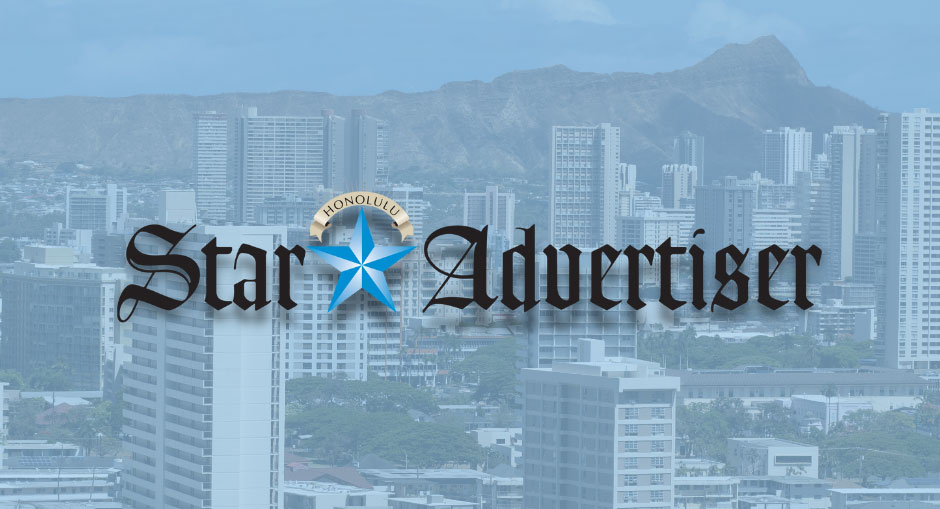A man from Japan and
another from South Korea are facing federal criminal charges for allegedly setting up an illegal supply chain of assault rifle parts from the U.S. through Hawaii to customers in Japan.
According to a criminal complaint filed in U.S. District Court on Monday, Homeland Security Investigations Honolulu and the Department of Commerce’s Bureau of Industry and Security are investigating Shota Yamamoto, Changmin Lee and other individuals who are involved in “an illicit smuggling scheme involving firearm components and accessories.”
Both face federal conspiracy charges.
From March 2024 through July, Yamamoto and his alleged co-conspirators successfully purchased export-controlled firearm components and tactical accessories from U.S. suppliers and exported or attempted to export them
to Japan for Airsoft players without the required licenses from BIS. Airsoft is a recreational game between teams or individuals featuring firearms that only shoot round plastic pellets at high speed.
Yamamoto, Lee and other alleged co-conspirators used the Visa Waiver Program to retrieve the firearm components and tactical gear from a house in Honolulu to export to Japan.
The Visa Waiver Program allows citizens of participating countries to travel to the United States for tourism or business for stays of 90 days or less without obtaining a visa.
Stay in touch with breaking news, as it happens, conveniently in your email inbox. It’s FREE!
Yamamoto made his initial appearance Thursday before U.S. Magistrate Judge Rom A. Trader with the aid of a Japanese interpreter. He has a preliminary hearing scheduled for Tuesday .
Assistant U.S. Attorney Michael F. Albanese is prosecuting the case.
On Dec. 27, 2024, Yamamoto and Lee attempted to board a flight from Honolulu to Tokyo with over 700 undeclared firearm components and tactical accessories in their luggage.
Yamamoto and Lee were stopped before boarding, and the firearm components and accessories were seized by law enforcement.
“At no point during the conspiracy period did Yamamoto, Lee, or any of the co-
conspirators apply for or obtain a valid license to export firearms components or accessories as required by U.S. law,” according to an affidavit written by a Homeland Security Investigations agent.
The HSI agent conducts investigations of violations of Export Administration Regulations, the “unlawful export, from the U.S. of goods, technology, and software identified on the Commerce Control List, as well as defense articles and services on the United States Munitions List.”
On Dec. 6, 2024, HSI Honolulu Field Office received an “investigative lead from a confidential source of information” that a person identified in federal court documents as “Co-
Conspirator 2” placed an order for 10 “AR-15 Lower Receiver Parts Kits” and five “M16 Control Group, Three Position Full Auto Kits” from M16 Parts Supply LLC, a firearm parts supplier based in Orlando, Fla.
The confidential source gave federal agents copies of email correspondence about the sale, billing information and other data.
The same email address used a mail delivery address in Honolulu and a billing address in Tokyo. The IP
address associated with the email address is from Japan.
On Dec. 26, HSI agents were tipped off that Yamamoto arrived in Honolulu on Dec. 24 and would fly back to Japan Dec. 27, according to federal court documents.
HSI agents coordinated with U.S. Customs and Border Protection Officers at Daniel K. Inouye International Airport to to search Yamamoto’s luggage and carry-on items.
On Dec. 27, Yamamoto and Lee, a South Korean citizen, were stopped trying to board a flight to Haneda,
Japan.
Inspection of Yamamoto and Lee’s checked-in luggage led to the discovery of “undeclared firearm components, rifle upper receivers, ballistic helmets, infrared lasers, body armor, and other tactical gear contained
inside.”
HSI and CBP detained about 700 firearm components and tactical gear pending a licensing
determination.
Yamamoto was questioned by investigators and allegedly admitted that he is the owner of the company ALCM and that he used the credit cards of his employees and co-conspirators to buy firearm components in the U.S.
He allegedly admitted that he and others had “hand-
carried firearm components from the United States to
Japan in their checked-in luggage on ‘three to four’ prior occasions in 2024,”
according to federal court records.
Yamamoto, Lee, and their three co-conspirators did not have a valid license allowing the exportation of firearms or firearm components identified on the commerce controlled list nor did they have license exceptions allowing them to export the items.
On Jan. 30, HSI agents and Honolulu police searched one of the co-conspirator’s home in Honolulu and seized “export-controlled radio communications equipment, ballistic helmets, and firearm components, as well as packaging paraphernalia with ALCM branding, “Made in Japan, For Airsoft Only” stickers, an electronic label maker, and an ALCM employment contract addressed to Co-Conspirator 1.”
Law enforcement also allegedly found invoices indicating a January 2025 shipment of several firearm components and accessories with the destination was ALCM’s business address in Tokyo.
That same day in Tokyo,
a CBP Officer on an international assignment in Japan got word that a box of about 40 AR-15 upper receivers was detained by Japanese authorities with a shipping label noting they were intended for Yamamoto’s business storefront in Tokyo.
Yamamoto allegedly told law enforcement that he modified the firearm parts for Airsoft use and did not believe he needed a license to export them. No evidence of the parts being modified were allegedly found.
He allegedly told agents that he bought “magazines and upper receivers from physical stores in Hawaii” and purchased dust covers and forward assists from online websites.
He allegedly said he sources shipments from the U.S. every three months and imported items “four or five times from Honolulu” for personal hobby use.
In February and April, HSI agents seized firearm parts from the home in Honolulu rented by Yamamoto’s business after he was questioned and informed about U.S. customs regulations,
according to federal court records.
